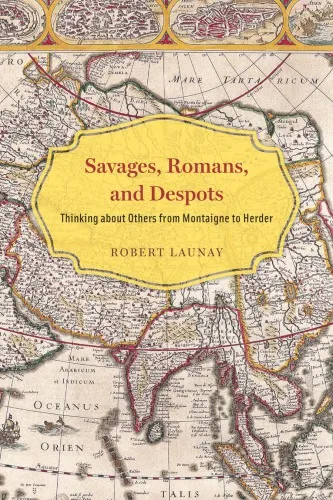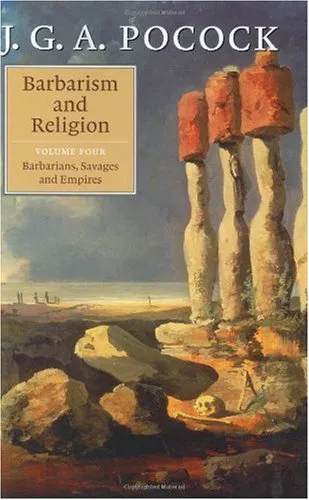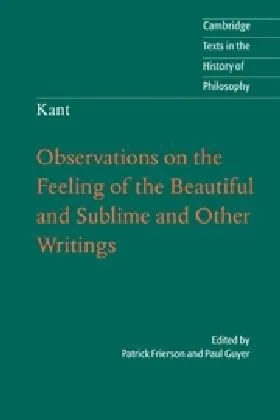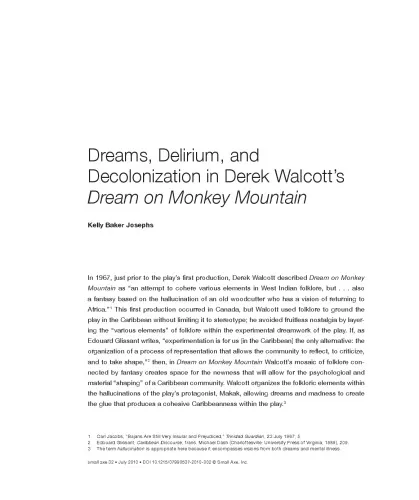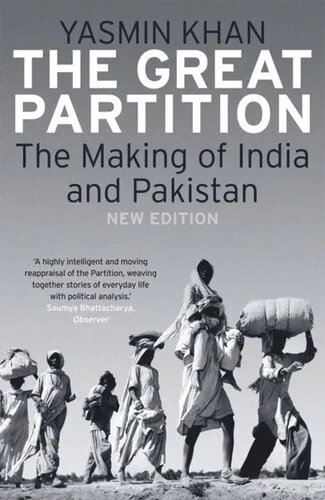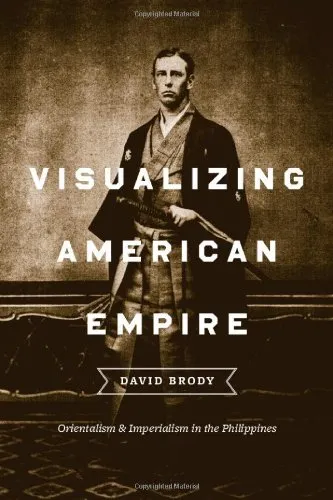Savages, Romans, and Despots: Thinking about Others from Montaigne to Herder
4.3
بر اساس نظر کاربران

شما میتونید سوالاتتون در باره کتاب رو از هوش مصنوعیش بعد از ورود بپرسید
هر دانلود یا پرسش از هوش مصنوعی 2 امتیاز لازم دارد، برای بدست آوردن امتیاز رایگان، به صفحه ی راهنمای امتیازات سر بزنید و یک سری کار ارزشمند انجام بدینکتاب های مرتبط:
معرفی کتاب "Savages, Romans, and Despots: Thinking about Others from Montaigne to Herder"
کتاب "Savages, Romans, and Despots: Thinking about Others from Montaigne to Herder" اثر رابرت لونای به بررسی شکلگیری و تحول تفکرات اروپایی درباره دیگر جوامع از قرن شانزدهم تا قرن هجدهم میپردازد. این اثر بر اساس تحلیل متون فلسفی، تاریخی و ادبی، نگاهی دقیق به نگرش اروپاییان به دیگر جوامع و فرهنگها ارائه میدهد.
خلاصهای از کتاب
در این کتاب، رابرت لونای به بررسی نوشتههای افرادی همچون "مونتنی"، "ولتر"، "روسو"، و "هردر" میپردازد. این اندیشمندان با استفاده از مفهوم "Savages" به توصیف جوامعی پرداختند که از دیدگاه آنها ابتدایی و بدوی تلقی میشدند. همینطور، "Romans" نمادی از تمدن کلاسیک بود که به عنوان معیار سنجش جوامع دیگر به کار میرفت. نهایتا، اصطلاح "Despots" به روشهایی اشاره داشت که اروپاییان تصور میکردند حاکمان دیگر فرهنگها از آنها بهره میگیرند.
لونای از طریق تحلیل دقیق این مفاهیم نشان میدهد که چگونه این چارچوبهای ذهنی نه تنها در تعریف "دیگران"، بلکه همچنین در تعریفی که اروپاییان از خود داشتند، تاثیرگذار بوده است.
نکات کلیدی
- تلاش برای درک عمیقتر روابط فرهنگی و اجتماعی میان اروپا و سایر قارهها.
- تحلیل تغییرات نگرشها نسبت به فرهنگها و جوامع غیر اروپایی.
- بررسی تاثیرات عمیق ادبی و فلسفی "Savages" و "Despots" بر دیدگاههای سیاسی و اجتماعی.
جملات معروف از کتاب
یکی از تاثیرگذارترین جملات کتاب تاملات مونتنی در مورد "Savages" است که به درک اولیه اروپاییها از مردم بومی اشاره میکند و معیاری برای بازاندیشی ارزشها و اصول فرهنگی خود ارائه میدهد.
چرا این کتاب مهم است؟
این کتاب مهم است زیرا به بررسی روند تاریخی شکلگیری نگرشهای اروپایی نسبت به "دیگران" و چگونگی تاثیر این نگرشها بر تعاملات جهانی میپردازد. با ارائه یک تحلیل دقیق و بدیع، این کتاب ثابت میکند که فهم گذشته میتواند به درک بهتر چالشهای معاصر در مواجهه با مسائل فرهنگی و هویت ملی کمک کند. همچنین، کتاب "Savages, Romans, and Despots" به مخاطبان خود نشان میدهد که چگونه اندیشهها و نوشتههای گذشتگان همچنان بر تفکرات امروزین نیز تاثیرگذار هستند.
Introduction to "Savages, Romans, and Despots: Thinking about Others from Montaigne to Herder"
"Savages, Romans, and Despots: Thinking about Others from Montaigne to Herder" delves into the evolution of European thought concerning other cultures during the early modern period. This rich analysis spotlightes how diverse intellectual discourses are rooted in cross-cultural encounters, reflecting the complex interplay between observation, documentation, and ideology.
Detailed Summary of the Book
At the heart of this book lies an exploration of conceptual frameworks used by European philosophers from the late 16th century to the late 18th century—a transformative epoch marked by European expansion, colonization, and burgeoning interest in global diversity. The text connects thinkers like Montaigne, Rousseau, and Herder, conceptualizing their work within a larger narrative of cultural encounter and exchange.
Starting with Michel de Montaigne, the French Renaissance philosopher known for his skeptical approach to European cultural superiority, the book investigates how he used the concept of the "savage" as a mirror to expose the moral and cultural deficiencies of Europe. The narrative proceeds through various intellectual figures and schools of thought, illustrating how philosophical inquiries and moral judgments about distant peoples often reveal more about the observers than the observed.
Through a chronological journey from Montaigne’s "Essays" to the burgeoning ideas of Enlightenment thinkers like Rousseau and Kant, and culminating in Herder's relativistic stance, the book encapsulates a significant shift—from a Eurocentric to a more relativistic appreciation of cultural differences. Herder, often considered a father of cultural relativism, argued for a dynamic understanding of human cultures, suggesting each had intrinsic value and should be understood on its own terms.
Key Takeaways
- The evolution of European thought from dogmatic cultural superiority to a more nuanced understanding of cultural relativism.
- The influence of cross-cultural encounters on European philosophical thought.
- The role of prominent thinkers and their literary works in shaping notions of the "other".
- An interrogation of how judgments about other societies often reflect the values and prejudices of observers.
Famous Quotes from the Book
"Montaigne challenged the prejudices of his day by confronting Europeans with the gulf between their self-perception and the reality of their actions."
"Herder’s perspective calls for an appreciation of cultural specificity and a rejection of universalist pretensions."
Why This Book Matters
"Savages, Romans, and Despots" is not just a history lesson in philosophical thought; it’s a critique of how the history of ideas continues to affect contemporary discourses on cultural diversity and relativism. By examining the past, the book prompts current scholars and society at large to be reflective and critical of ongoing narratives surrounding globalization, identity politics, and postcolonial thought.
This work’s relevance extends beyond academia, appealing to anyone interested in the philosophical challenges of understanding cultural otherness. It provides an intellectual framework for reading historical texts and understanding the evolution of cultural thought that continues to shape our world.
دانلود رایگان مستقیم
شما میتونید سوالاتتون در باره کتاب رو از هوش مصنوعیش بعد از ورود بپرسید
دسترسی به کتابها از طریق پلتفرمهای قانونی و کتابخانههای عمومی نه تنها از حقوق نویسندگان و ناشران حمایت میکند، بلکه به پایداری فرهنگ کتابخوانی نیز کمک میرساند. پیش از دانلود، لحظهای به بررسی این گزینهها فکر کنید.
این کتاب رو در پلتفرم های دیگه ببینید
WorldCat به شما کمک میکنه تا کتاب ها رو در کتابخانه های سراسر دنیا پیدا کنید
امتیازها، نظرات تخصصی و صحبت ها درباره کتاب را در Goodreads ببینید
کتابهای کمیاب یا دست دوم را در AbeBooks پیدا کنید و بخرید
1358
بازدید4.3
امتیاز0
نظر98%
رضایتنظرات:
4.3
بر اساس 0 نظر کاربران
Questions & Answers
Ask questions about this book or help others by answering
No questions yet. Be the first to ask!
